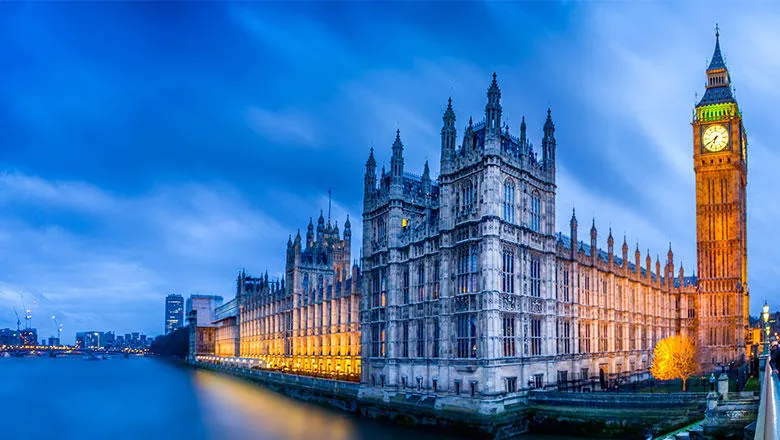21 July 2020
We need more black women in British politics
Erica Aworo
ERICA AWORO: In its current form, parliament clearly does not represent the nation

Erica Aworo is an intern at the Global Institute for Women's Leadership.
It has been a long, slow journey towards fair representation of women in parliament, and there is still plenty of distance to go. Following various headlines which included statements such as “most diverse parliament yet” and “recording breaking” to describe the number of black, Asian, and ethnic minority MPs elected to parliament as a result of the 2019 general election, many would have assumed that out of the 220 women elected, we would have welcomed a few more than just the handful of new black faces among them.
However, this was far from the case. In fact, power is still distributed unequally in the UK, as ethnic minorities – in particular black women – remain massively underrepresented, with just 12 of the 220 women being black.
The underrepresentation of black women is an important issue that needs addressing for a number of reasons. However, for the purposes of this blog post we will focus mainly on representation and democracy.
Representation is fundamental to democracy and so political institutions should represent all women and guarantee their political rights. Substantive representation, which refers to the tendency of elected MPs to advocate on behalf of certain groups, is thus crucial in being able to get ideas and interests which may otherwise be overlooked onto the political agenda. Having more black women in politics could help in changing the tone and nature of debates in the House of Commons, in addition to potentially highlighting more areas which disproportionately affect black women and their families.
Policy areas such as health and wellbeing, the criminal justice system, education and employment would particularly benefit from the inclusion of more black women. For starters, not only were black mothers reported to be five times more likely than white mothers to die during pregnancy between 2014 and 2016, but the life expectancy of black people has also been identified to be lower than that of the general population as a result of the disproportionate number living in areas of deprivation.
Unequal opportunities can also be found in the educational system, where gaps in educational achievements continue to endure at every level. Beginning with secondary school, figures indicate that black Caribbean pupils were nearly twice as likely to be excluded than white pupils in the academic year 2016-2017 (10 per cent compared with 5 per cent) as well as being three times more likely to be permanently excluded.
The divide continues at A-level, where approximately 11 per cent of white students were able to obtain three A grades, compared with just 5 per cent of black students. It’s a similar story in higher education: 10 per cent of black students quit university early in England, compared with just 7 per cent for the student population as a whole.
Last but not least, the criminal justice system. Black people serve prison sentences which are 50 per cent longer than those of white people. In fact, the average length of a sentence for a young black adult in 2017 was around 28 months, while young white adults only received sentences of around 19 months. Young black defendants are twice as likely to be denied bail, in addition to a being involved in nearly a third of all police custody deaths in the past two years, as found by a review into such deaths by the Independent Office of Police Conduct.
But why is this so important? In a country such as the United Kingdom, where we have a large percentage of individuals from ethnic minority groups, it is imperative to deliver an ample number representatives from these ethnic minority groups in order to best reflect the diversity of interests in the deliberation process. After all, in the face of declining voter turnout, it may be hard for individuals to trust a government that does not look anything like them. Instead, this lack of co-ethnic role models may act as a deterrent for young black females considering similar career paths if they cannot see anybody that looks like themselves.
This may further perpetuate the idea that skin colour often has the ability to determine job prospects, which is drummed into the ears of young black girls as they are brought up on the proverb of needing “to work twice as hard to get to get half as good”.
Thus, the need for more black women in British politics is not just an issue of democratic responsibility but also the importance of visible representation and diversity. If the glass ceiling is to ever be broken, we must ensure that young people are provided with role models that they identify with.
As a society must ensure we normalise positions of power being occupied by both men and women of all races in order to avoid, for example, mistaking black women for members of the cleaning staff, as was the case for Dawn Butler in 2016, or being asked to look after a MP colleague’s bag because it’s assumed you’re not a fellow official.
Until parliament can get to a stage where this is becoming a reality rather than a distant dream, it does not – and cannot – adequately represent the nation. Thousands of voices are potentially falling on deaf ears, fundamentally failing to reflect the people parliament is there to represent.
